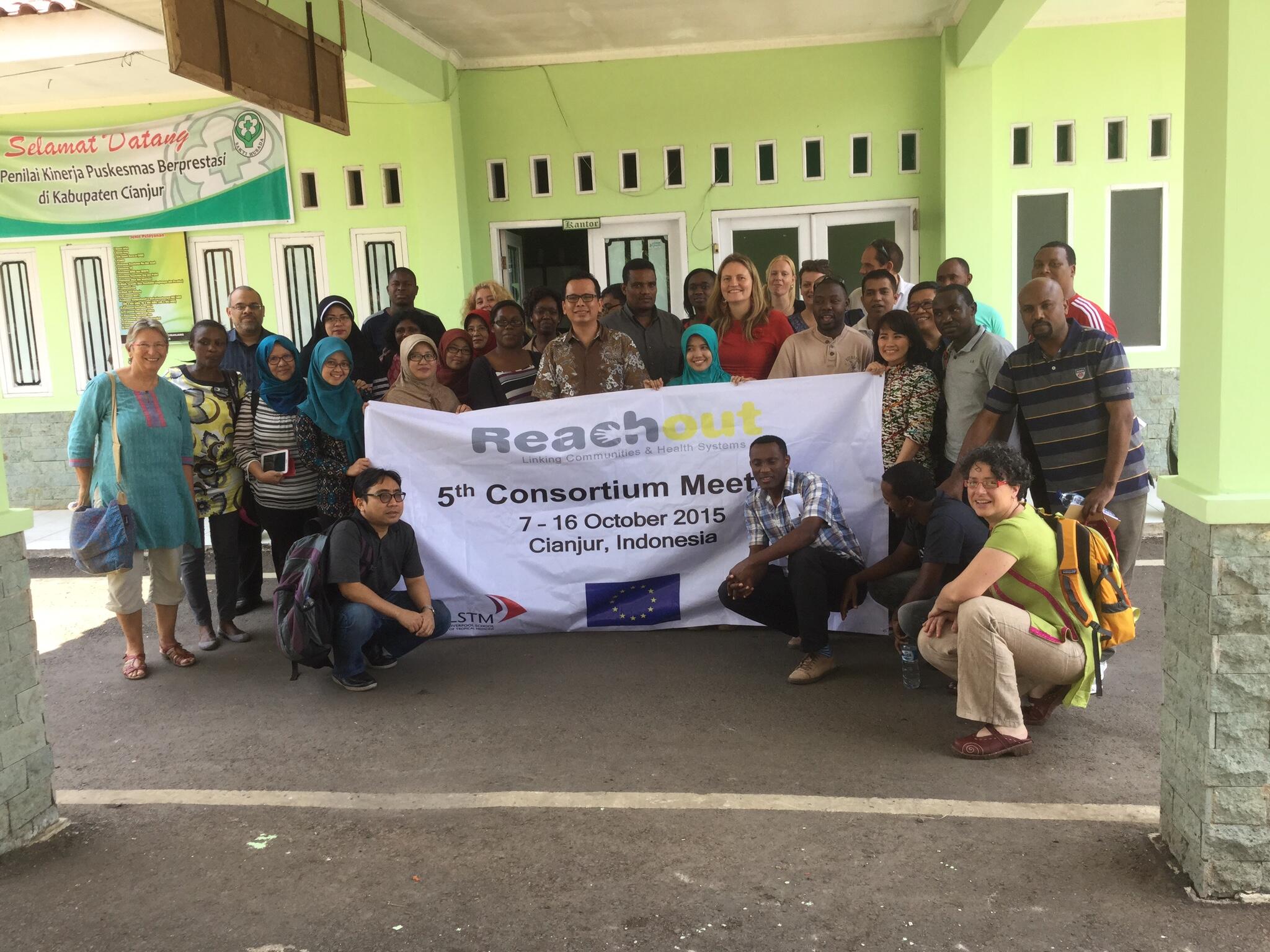
The 5th REACHOUT consortium meeting was held from 7th-16th October and was hosted by the Eijkman Institute in Cianjur, Indonesia. REACHOUT colleagues joined from LSTM, UK; KIT, the Netherlands; LVCT Health, an NGO based in Kenya; REACH Trust, Malawi; REACH Ethiopia, Ethiopia; University Eduardo Mondlane, Mozambique and the James P. Grant School of Public Health in Bangladesh.
REACHOUT, which is now in its 3rd year, is an ambitious 5-year project, which aims to increase the equity, efficiency and effectiveness of close to community providers. The first quality improvement (QI) cycle is being completed and planning is taking place for QI cycle 2.
With an emphasis on capacity building, the 1st week of the meeting was focused on young-researchers development. Activities included public speaking workshops, mixed methods analysis training and creating personal development plans. Ralalicia Limato, Research Operations Manager, REACHOUT Indonesia said: “REACHOUT Consortium meetings are always exciting for me. Meeting colleagues from the REACHOUT family and sharing knowledge and experience with them are both enjoyable and valuable. Moreover, being able to learn in a safe environment is a unique opportunity provided by REACHOUT, including this meeting."
For the second week, partners from each country context joined the REACHOUT country teams. Our partners included policy makers, practitioners and NGO lead implementers, and the focus for the week was on embedding quality. We opened with presentations from the country teams on the findings from the QI cycle 1 and engaged with Indonesian politicians and local press who attended the event to build advocacy for the work we are doing. We were also fortunate enough to be joined by Dr. Gita Maya, Indonesian Director of Maternal Health, who discussed the issues in Indonesia relating to the high maternal mortality ratio and shared with us the country’s plans to address this.
The engaging and interactive programme for the week included training of trainers in quality improvement approaches for close to community providers, developing SWOT analysis for embedding quality and panel discussions with the country partners. The participants also visited volunteer-led village health centres or ‘Posyandus’ on the monthly vaccination day to observe the community health workers ‘kaders’ in action and visited the Community Health Centre ‘Puskesmas’. The meeting generated much exciting and insightful discussion around community health services in different contexts, with a focus on maternal and child health.